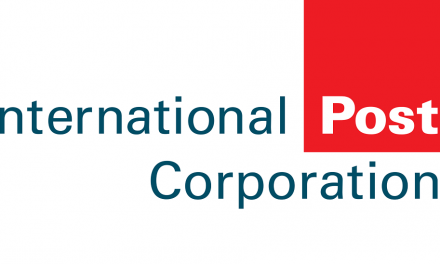
Israel Post Q&A
Avi Hochman, President & CEO, Israel Post
World Mail Review May 2008
1. Give us a few facts and figures about your company – revenues, volume, profit, employees etc.
- Revenues for 2007 of approx. 1.7 Billion NIS (USD $485 Million).
- Profit in 2007 for the first time since the establishment of the Israel Postal Authority in 1987!
- Profit of approximately 40 million NIS (USD $12 Million) after many years of huge losses.
- 40 Million payments processed annually in our 700 branches, with a volume of USD $45 billion.
- Over 6000 employees.
- Fleet of 1000 postal vehicles.
- 3 Sorting centers capable of sorting 4 million mail items per day.
2. How do you define your universal service obligation?
Our universal service obligation can best be defined by our motto: “Anywhere, for everyone”. It is our goal to be the national transporter of mail and funds in Israel and to the world, and to provide all citizens with postal services and ancillary services supported by advanced technology throughout the country at a competitive price and quality level. We deliver mail 5 days a week throughout the country, including remote rural areas and villages via our 48 mobile post offices, and also offer courier services to almost all parts of the country. We offer over 100 products and services, many of them automated, in 700 branches throughout the country, making Israel Post the most widespread commercial chain in the country. (We have more branches than the 3 major banks put together).
3. What are the main developments in your marketplaces-mail, parcels and retail? What are the opportunities for growth and/or problems of decline in the various sectors? To what extent are your markets open to competition?
About two thirds of Israel post’s revenue comes from traditional mail, of which bulk mail constitutes a significant part. The domestic bulk mail Market is worth USD $232 M, of which USD $220 M is distributed by the Israel Postal Company. The business mail market is dominated by three large printing houses (50% of the total business mail market). Our largest customer is also our top competitor. In July 2007 the bulk mail market was fully opened to competition, and coupled with the introduction of new tariffs in November 2007, we expect to lose market share in the bulk mail market at an exponential rate. We have already started feeling the effects of the competition as of January 2008. The postal market is scheduled to be opened fully to competition in July 2009. Alongside the heavy competition, there are opportunities to increase revenue in the traditional postal areas of international mail and courier services, thanks to growth in these markets. There are also many new opportunities to be enjoyed in the form of new products and services, which are in various stages of development. These include: electronic and hybrid mail, distribution lists, advanced financial services and insurance services (and in the more distant future a full commercial banking license), logistics services, ticket sales, customs brokerage, retail of office supplies and telecommunications devices, and more.
4. Can you explain something about your ownership / oversight / regulatory environment? Are there any plans for privatisation?
On 1st March 2006 the Israel Postal Company was established as a fully state-owned company in a competitive market. The new company replaced the Postal Authority, a government agency which had been in existence since 1987. Our regulatory environment is complex to say the least, as we have 3 regulators whose agendas do not always coincide: the Minister of Communications, Minister of Finance and Bank of Israel. The government of Israel has passed a decision to privatize the company, however we do not know when the process will be set in motion.
5. Do you have any alliances/joint ventures with private sector partners? Please tell us about them.
US Shops – a new online Joint venture whereby our customers can purchase a wide range of American brands (clothing, electronics etc.) directly via our super user-friendly website (go to www.ushops.com) and receive them to their doorstep. VISA pre-paid credit card – available to all customers with no need for a bank account, can be charged with up to 1000 NIS and card is accepted at all retail stores, restaurants etc. Insurance services – soon to be launched self-services stations for comparison of car insurance prices and purchase of car insurance policies.
6. Tell us something about your direct competition in mail and parcels.
As described in point 3. I can add that we have two major competitors in bulk mail (local Israeli companies), although anyone can get a license to distribute bulk mail as it costs only 5000 NIS. We have several strong competitors in the international mail market – mainly UPS, FedEx and TNT, as well a couple of local companies. The courier market is highly competitive and Israel Post holds approximately 10% of the market.
7. How do you see the digital threat/opportunity? Does your organisation have products and services that clearly operate in the digital space?
- It’s definitely an opportunity that we are embracing. We have a major project under development at the moment called IPOST, which in its first stage, due to be launched very soon, will provide a one-stop-online-payment site for all bills and utilities. In its later stage, IPOST will provide every citizen of Israel with a unique, secure email box through which they will be able to receive and send communications from and to all government offices and agencies, including online registered mail.
- We also have an advanced website that offers several online services – for example: “my stamp” – customers can send in a photograph which is then turned into a unique stamp sheet containing 12 stamps, and delivered byregistered mail; customers can design and order online their own greeting cards for festivals and other special occasions.
8. Following Israel Post’s major and successful transformation programme, could you explain what your key objectives were/are? How did your employees respond? How did your customers respond?
My main objectives were to increase efficiency, invest in new growth engines, improve service to the public, upgrade our technological infrastructure and invest in human resources. Our customers love the overhaul we’re doing in our branches and the improvement in service, though I have no doubt that it will be a constant challenge to keep them happy as they become more and more demanding in the increasingly competitive market. The process of increasing efficiency, which includes downsizing by 500 employees over a 3 year period, hasn’t been easy, as is to be expected. But the employees who remain are learning to think and talk “business” and we can feel the change throughout the company.
9. How do you measure customer satisfaction?
“Secret customer” surveys and various marketing surveys, both quantitative and qualitative.
10. Can you give two or three examples of real innovations in your organisation for the benefit of the customer?
- The complete overhaul to 41 of our branches, including plasma screen TV’s, advanced electronic queue management systems and comfortable couches to wait on – we’ve said goodbye to the old queues in these branches.
- The self-service stations for purchasing car insurance are super-innovative and we expect this product to be extremely popular.
- We’ve recently launched a customs brokerage service and are now able to provide importers with a full range of services, end-to-end.
- Many of the other services I’ve mentioned fit the description of innovative – the prepaid credit cards, US Shops website, etc.
11. Finally, as CEO, what gives you most pride in what you have achieved?
To have successfully led the organisation through a major transition, and to watch my employees become more and more marketing and service oriented. Our results in 2007 proved that the sky’s the limit as far as our performance goes, now we have to fight the battle against over-regulation that prevents us from competing fairly in the market.
5. Do you have any alliances/joint ventures with private sector partners? Please tell us about them.













